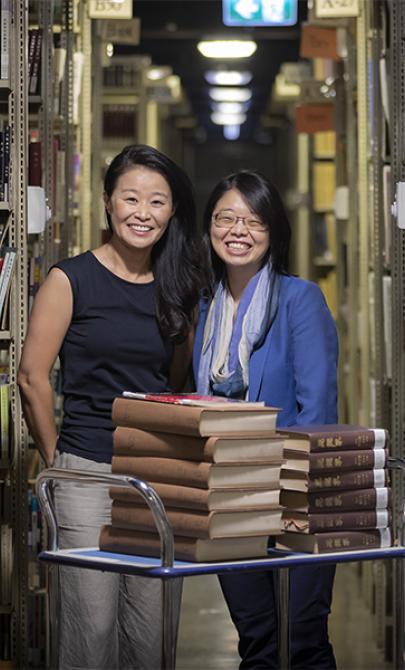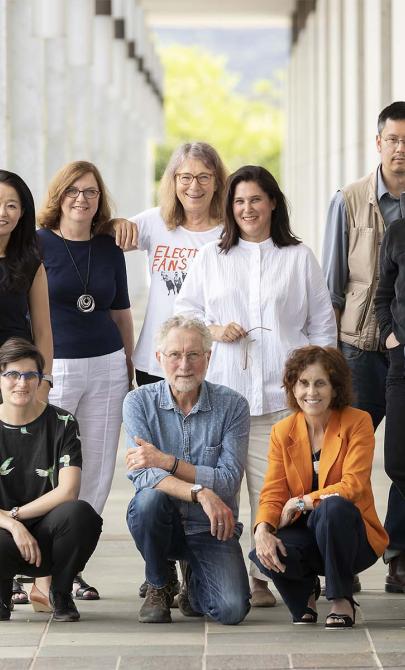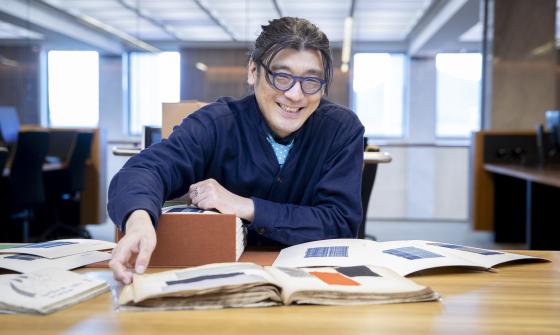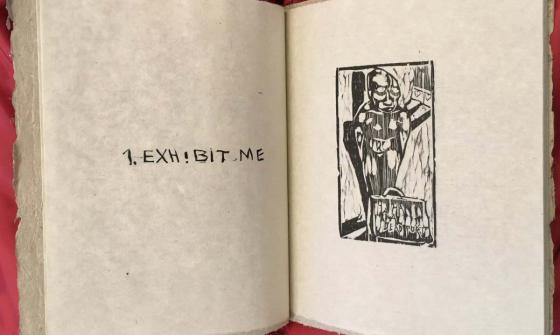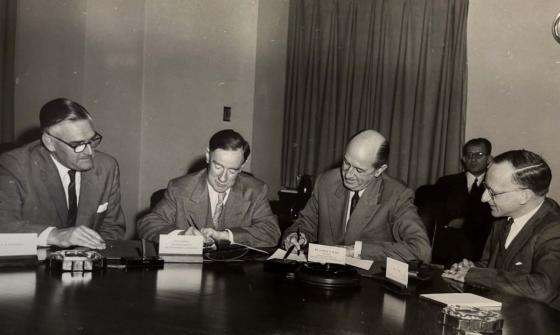National Library of Australia Fellowships
Applications for 2026 National Library of Australia Fellowships have now closed.
About National Library of Australia Fellowships
The Library’s Fellowships offer experienced researchers an opportunity to undertake deep and sustained research at the National Library using the Library’s collections.
Fellowships are available to researchers who require onsite access to the Library’s uniquely held or extensive collections to advance their research towards publication or other public outcomes.
Applicants may work in any field or discipline where the Library's collections have appropriate depth and breadth to support the desired outcomes.
National Library of Australia Fellowships will:
- contribute to a greater public understanding or knowledge of the Library’s collections, enhancing the national and international reputation of the National Library as an institution of major research significance
- promote discussion through research which informs and engages contemporary discourse
- actively promote the research experience and outcomes.
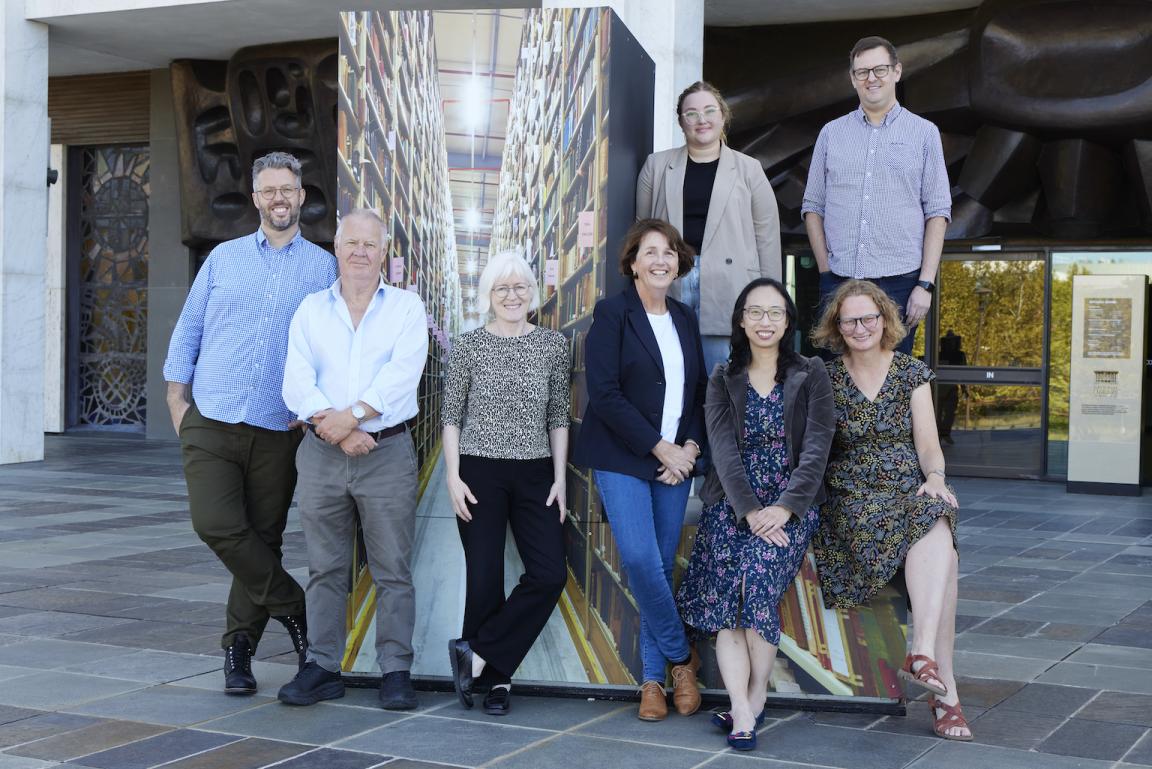
National Library Fellows and Scholars, March 2024
National Library Fellows and Scholars, March 2024
Types of National Library Fellowships
Up to 8 funded NLA Fellowships are available in 2026. Four are for research on any subject, and four are for identified fields of research.
- Any subject: 3 Fellowships supported by the Stokes Family; one supported by the Alan Ives Bequest
- Asian studies: one Fellowship in memory of Cheng King Law; one supported by the Harold S. Williams Trust
- Australian literature: one Fellowship supported by the Ray Mathew and Eva Kollsman Trust
- Australian rural, regional or environmental history: one Fellowship in memory of Professor Ivor Jones
What Fellows receive
- $35,000 to support a sustained research residency at the National Library. Funding is based on 12 weeks at the National Library. Fellows have 24 months to complete their research
- Supported access to the Library’s collections
- Use of the Library’s Petherick Reading Room
- Increased borrowing privileges to maximise access to the collection
- A Copies Direct allowance of $1,500 for high resolution digital copies of collection materials for publication or other public uses (subject to copyright, licensing and access conditions)
How to apply
Before you start your application, make sure you understand the eligibility requirements for you and your project, how to apply and what your application needs to include.
Applications are submitted through the SmartyGrants online platform.
- You must apply through SmartyGrants, via the ‘Apply now’ button on this page. We don’t accept hardcopy or offline applications.
- You can preview the form before starting an application. Once started, please save your form regularly. You can save and edit the application, but you can’t make changes after you’ve submitted.
- If you have difficulties with SmartyGrants, contact us at fellowships@nla.gov.au.
We handle your application and personal information as described in our privacy policy.
No. We do not accept late applications or support material. Make sure you check the closing dates for applications. You should allow for any time difference, and internet connection or submission issues.
National Library of Australia Fellowships are open to experienced researchers for projects at any stage of development, as well as those undertaking research which forms part of a larger project.
National Library of Australia Fellowships are open to:
- Australian residents, and international residents eligible to apply for a visa to Australia. International residents will be responsible for securing their own visas
- individuals only. If your research is contributing to a collaborative project, you must demonstrate your own research component
- researchers who are able to demonstrate their experience and ability to undertake advanced research with clear, planned public outcomes.
You must be able to undertake your residency in Canberra between 19 January 2026 and 10 December 2027.
You cannot apply if:
- you are currently undertaking PhD studies. Your PhD must be conferred before 5 May 2025 to be eligible to apply. Proof of completion may be requested
- you have received a research Fellowship, Scholarship or Grant from the National Library of Australia within the last five years, i.e. funding was received in one of the Library’s 2021-2025 program rounds
- your research supports writing a literary work or creating an artistic work. These projects are supported through the National Library’s Creative Arts Fellowships.
If your research falls within one of the subject-specific Fellowship categories, please indicate this on the application form by selecting the relevant research field (ie Asian Studies, Australian Literature, or Australian rural, regional or environmental history). You may nominate for more than one category should your project fit the criteria.
National Library Fellowships are open to researchers, working within or outside academic institutions, who are able to demonstrate their experience and ability to undertake advanced research with clear, planned public outcomes. Researchers may hold a PhD, equivalent work experience and/or demonstrate a strong publications or public outcomes record relative to opportunity.
As a guide, we use the following career stage definitions, based broadly on those used by the Australian Research Council.
- Early career researcher: A researcher working for a period of less than or equal to 5 years at the time of their application, excluding any breaks in their career
- Mid-career researcher: A researcher with between 5 and 15 years of advanced research experience at the time of their application
- Experienced researcher: A researcher with over 15 years of advanced research experience
Yes. Fellowships are provided to enable you to have the time to undertake deep research into the Library’s collections.
Your application should demonstrate knowledge of the Library’s collections that are relevant to your project.
Before you begin your application, research the Library's collections to identify the primary collections you intend to use . This can be done using the Library catalogue. The Library’s Ask a Librarian service may also provide some guidance to finding material on the catalogue if required. While your list is unlikely to be definitive at the time of application, applicants who do not show how the Library’s collections will support their proposed research will not be successful.
Your application should highlight how the Library's collections can contribute to your project outcomes, with a focus on items accessible only onsite. Applications only listing collection items that are published works held by multiple libraries, or collection items that are digitised and readily available online, are not likely to be successful.
Applicants should demonstrate awareness of any access, Indigenous Cultural and Intellectual Property or rights issues that may apply to identified collection items. Information about access conditions can be found in the catalogue record, and the Ask a Librarian service can be used if further assistance is required.
Your application should demonstrate the following.
- an excellent research concept and an innovative approach, including the application of the National Library’s Indigenous Cultural and Intellectual Property (ICIP) protocols and ethical research principles where appropriate
- a clear explanation of research goals and expected progress during the Fellowship, including a timeline of when you plan to be working onsite at the National Library
- the relevance and value of the National Library’s unique, rare or comprehensive collections to support the research outcomes, along with an awareness of any access permissions that may be required for collection material
- a demonstrated record of high-quality research or scholarship, relative to opportunity, including a relevant record of publication or other professional outcomes
- the project’s potential benefit to wider scholarship and/or professional practice, as well as the potential for increasing public knowledge of the National Library’s collections
Your application will need to include:
- a project proposal, expected outcomes, and research plan with timeline
- a list of the collection materials you wish to access, provided in the format requested
- a short, biographical statement
- a CV (maximum two A4 pages)
- relevant publication list, or list of other relevant public outcomes (maximum two A4 pages)
- proposed start and end dates for your research at the National Library. Residencies may be scheduled between 19 January 2026 and 10 December 2027. The duration and timing of your residency will be determined by you, based on your research plans and the Fellowship funding offered. Final dates will be negotiated and confirmed with successful applicants
- contact details of referees, who can speak to your area of research and put the proposed project into context. Applicants are responsible for providing a copy of their application to their referees. These can be downloaded or printed from SmartyGrants. Referees of shortlisted applicants will be contacted directly by the Library.
Your application should demonstrate awareness of Indigenous Cultural and Intellectual Property (ICIP) and protocols, and demonstrate how you will implement the National Library’s ICIP protocols in your research. If you are planning to use collection material by or about Australian First Nations people, or your project has an Australian First Nations focus, a letter of support from appropriate First Nations organisations, communities and Elders would strengthen your application.
Information about access conditions, including ICIP, can be found in the catalogue record, and the Ask a Librarian service can be used if further assistance is required.
You should only provide the supporting material requested in the application form.
Applications are assessed by the National Library’s Fellowships Advisory Committee (FAC). The FAC is chaired by the Library’s Director-General (or their delegate) and a representative from each of the following organisations.
- Academy of the Humanities
- Academy of the Social Sciences in Australia
- Asian Studies Association of Australia
- Australian Academy of Science
- Australian Society of Authors
- Independent Scholars Association of Australia
- National Library of Australia’s Aboriginal and Torres Strait Islander Research and Education Reference Group
All applications are assessed based on the selection criteria as specified above. The FAC may also seek independent expert advice if required.
National Library staff read and shortlist all applications against the eligibility criteria. The Fellowships Advisory Committee is then provided with the shortlisted applications as well as a complete list of all applications. Committee members can call into consideration any applications that are not included on the initial shortlist.
At its discretion, the Fellowships Advisory Committee may decide not to award a Fellowship in any given category or year.
Successful applicants will receive a Letter of Offer along with a Conditions of Appointment agreement that must be signed and returned. These documents outline the terms and conditions under which the Fellowship will proceed.
Fellows are required to:
- give one public presentation, which may be live-streamed or pre-recorded at the discretion of the Library and in consultation with the Fellow, that highlights the work undertaken during the Fellowship and research-in-progress
- acknowledge the support of the National Library and the Fellowship donors in forums, presentations and publications resulting from the Fellowship
- assist the Library to promote the Fellowship through media and public communications, including through contributions to social media
- provide a report within one month of the agreed end date of their Fellowship outlining their experience, which may be used by the Library to review, report on, and promote the Fellowships
- support the Library's donor relations activities during the Fellowship.
The period of Fellowship research may lead to longer-term outcomes, rather than immediate publication or public outcomes. The Library does not expect Fellows to compete a body of work during the residency. Fellows are encouraged to inform the Library of any research outcomes of the residency, and deposit material in the Library’s collection if appropriate.
Funding will be paid directly to you for the purposes of supporting your Fellowship. Payments are made in two or more instalments over the period of your residency at the National Library.
Funding will not be paid in advance of your arrival in Canberra. The first payment will be made during the first week of your residency. Payment of the second and any subsequent installments will be subject to the timing of your residency.
Any arrangements between you and your employer are your responsibility. The Library will not make payments to your employer.
As Fellowship funding is likely to have tax implications, it is recommended Fellows seek professional financial advice which considers your personal circumstances.
You are responsible for clearing copyright of collection materials used if applicable and acknowledge and cite source materials appropriately.
All intellectual property rights (including Indigenous Cultural and Intellectual Property rights and copyright) in any work you undertake during a residency will vest in you on its creation.
At the start of a residency, successful applicants will meet with the Library’s Rights Management team who can provide advice on many of these matters.
We will advise you of the outcome of your application by mid-December 2025.
If you are successful, you will receive a Letter of Offer, and your name will be published on the National Library’s website. Unsuccessful applicants will be notified by email and can seek feedback by contacting us.
Meet our Fellows
We awarded 9 National Library of Australia Fellowships for 2025
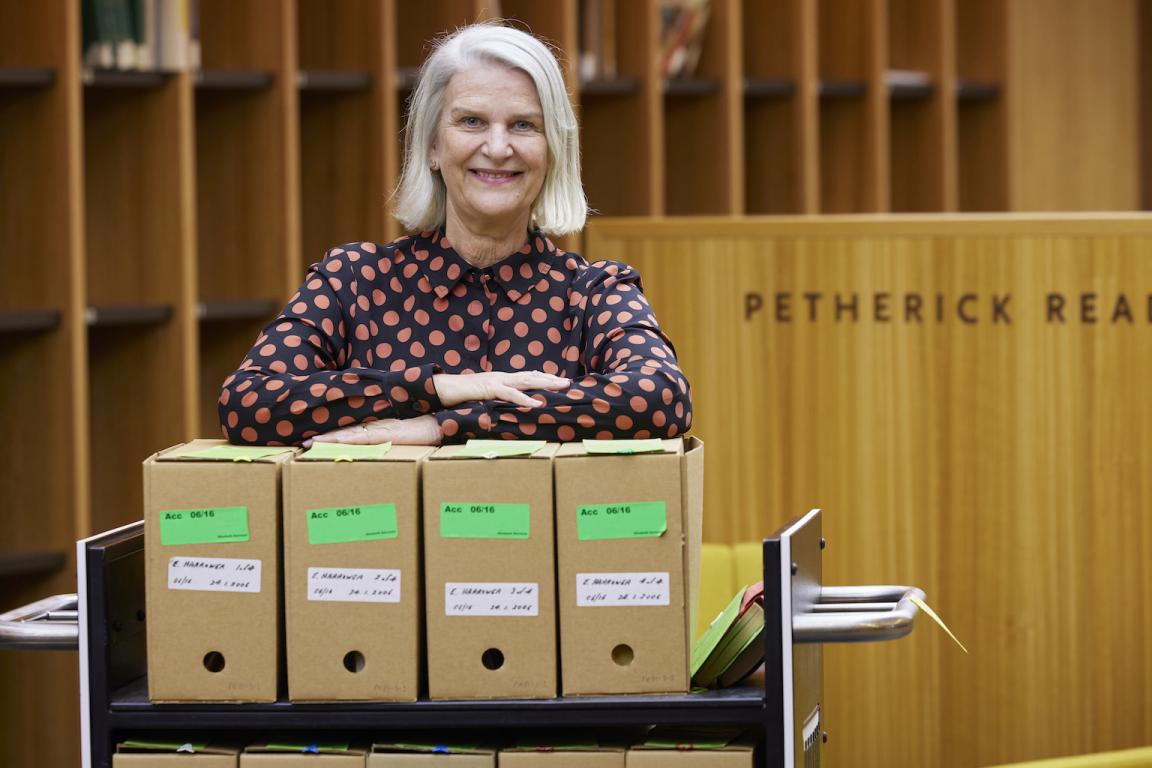
2024 National Library of Australia Fellow, Ms Susan Wyndham
2024 National Library of Australia Fellow, Ms Susan Wyndham
